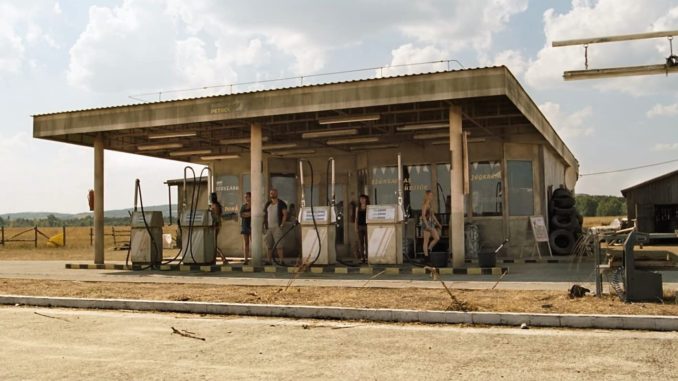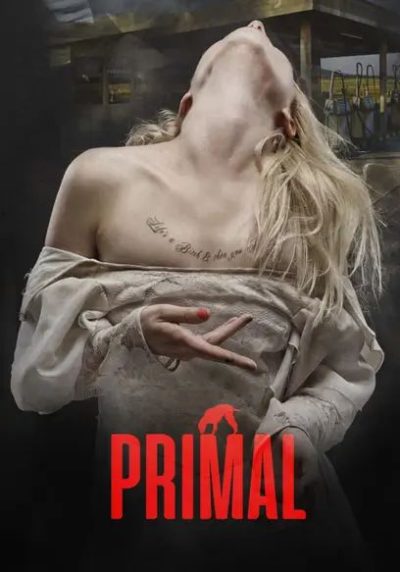
Rating: B-
Dir: Attila Gigor
Star: Péter Jankovics, Niké Kurta, Roland Tzafetás, Zsolt Kovács
a.k.a. Kút
While I’m sure you know what a “road movie” is, this doesn’t quite qualify. It’s probably closer to a “side of the road movie,” in that you have people on their way from point A to point B (be that physically or spiritually), who find themselves more or less unwillingly stuck at point C, somewhere in the middle. The main focus is Laci (Jankovics), a shiftless young man. He has finally decided to reconnect with his father, István (Kovács), who abandoned him and his mother when Laci was two. His mother is more than happy to oblige, so dumps Laci at the roadside petrol station/shop István runs, with the help of his crippled assistant, Zoli (Tzafetás), in the middle of nowhere.
To help make ends meet, István helps out smugglers, moving all manner of contraband – including people – across the border. One such posse arrives, and their van “breaks down”: quotes used since it may be the result of deliberate action. It’s moving four hookers to work in Switzerland, but they and their irascible handler have to stay in István’s establishment. However, turns out the women are not the only goods supposed to be moving, only nobody seems to know where the items in question are. Tempers begin to flare as time ticks by, and Laci starts to form a relationship with Marcsi (Kurta), until things eventually explode into violence. Key word, “eventually,” for it’s a bit of a slow burn. Anyway, this brings in the big boss, Dzsoni (Kovács), and his hoods. Further violence ensues.
 It feels Tarantino-esque, most closely True Romance in its story of a naive young man who gets involved with a hooker, and consequently, with vicious criminals. There are also points when this certainly goes beyond necessity in terms of chattiness. Yet the characters here are generally interesting and keep your attention. On occasion they seem more like genre tropes, until they reveal quirks which hint at unexpected depths. For example, István has faithfully kept his ex-wife’s wedding dress in his closet for decades. Zoli might be the most compelling of all, telling a meandering story about a dog across the duration of the whole film, which is curiously fascinating.
It feels Tarantino-esque, most closely True Romance in its story of a naive young man who gets involved with a hooker, and consequently, with vicious criminals. There are also points when this certainly goes beyond necessity in terms of chattiness. Yet the characters here are generally interesting and keep your attention. On occasion they seem more like genre tropes, until they reveal quirks which hint at unexpected depths. For example, István has faithfully kept his ex-wife’s wedding dress in his closet for decades. Zoli might be the most compelling of all, telling a meandering story about a dog across the duration of the whole film, which is curiously fascinating.
As well as Romance, I’d not be surprised if The Hateful Eight, released the previous year, was another influence: people crammed together for dramatic purposes, each with their own story to tell. There’s definitely not much sense of specific time or place, for what could almost be a “goulash Western”. Instead of a contemporary Hungarian rest-stop, it would require few modifications to the script. Turn the location to a coach-house in a snowy Wild West mountain pass, make Laci a rookie cowpoke on a cattle drive, and transform Marcsi into a saloon girl. On the other hand, it’s quite fine as is, and if it ain’t broke, why fix it? This works well enough on its own terms – and better than most Tarantino works, as far as I’m concerned.
